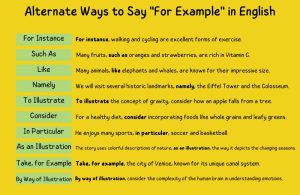Have you ever been in a situation when you were such excited that just saying “I am excited” didn’t help you to express yourself fully? Or did you ever lose your words to describe your extreme excitement? No worries if your answer is “YES.” In this post, we’ll learn more than 50 alternate ways to express excitement in English.
“I’m thrilled…,” “I was so delighted…,” “I can’t believe…,” and “I was over the moon…,” are some common ways of expressing excitement without using the word “excitement.” Your words, tone, and body language may vary depending on the formality while expressing excitement in English.
Are you looking for a book or a guide to help you learn and improve your English? You may try English Made Easy Volume One: A New ESL Approach: Learning English Through Pictures (Amazon Link).
Table of Contents
- #1 Be Honest About Your Feeling
- #2 Use Appropriate Words
- #3 Use Tone & Body Language to Help Express Feeling Better
- #4 Show Reasons for Your Excitement
- 50 Ways to Express Excitement in English
- Sample Conversation: Expressing Excitement in English
- In Conclusion
- 10 Frequently Asked Questions Related to Expressing Excitement in English
There are six core human emotions: happiness, sadness, fear, anger, disgust, and surprise. However, many ESL speakers can’t express themselves correctly due to a lack of proper vocabulary & knowledge of how to manage emotions.

It is because there are different levels of each emotion. So, for example, the words you use to express your anger or disgust depend on how angry or disgusted you feel about anything. The same rule is also applicable to expressing surprise or excitement.
No emotion is absolute. So, if you are incredibly excited, merely using the word “excited” may not appropriately describe your feeling.
Now, let me give you some useful tips first so that you can develop the skills to express your emotion appropriately.
#1 Be Honest About Your Feeling
While expressing excitement, you must be honest about your feelings. Be sure that you don’t exaggerate or do it less. If you are incredibly excited, express that in your own way.
Don’t pretend you are highly excited when you are not. Language should function naturally based on the necessity depending on different situations. Most people listen to those who sound natural while speaking. If you pretend or exaggerate, you might not sound natural.
#2 Use Appropriate Words
As your level of excitement is not always the same, just using the expression “I’m excited” may not always express yourself fully. Sometimes you are very excited, thrilled, or delighted, and sometimes you are less or more than that.
So, to express how you really feel when you are excited, your words matter greatly. Your words help you best to show the actual level of your excitement.
#3 Use Tone & Body Language to Help Express Feeling Better
After choosing words, body language and voice tone matter the most while communicating with someone. Your body language and tone can help you express your true feelings adequately.

Your tone, gestures, and facial expressions should also indicate that you are excited. Even at the time, people can understand that you are enthusiastic just because your eyes say that.
#4 Show Reasons for Your Excitement
Showing reasons why you are excited to help your listener understand or realize your excitement level. For example, you might be so excited if you have been looking for a job for the last couple of months and got it after that hard work.
However, if you tell your mother, “I’m so excited,” without mentioning that you got a job, your mother may not get how excited you are. If you say, “I’m very excited to get the job I ever wanted,” your mother will easily understand how excited you are.
So, if possible, mentioning the reasons behind excitement may help your listener easily understand your excitement level.
Now, let’s see some expressions that may be used to express excitement in English. You should apply the tips while using the following sentences.
50 Ways to Express Excitement in English

- I’m so excited about the next tour.
- I’m very excited to see you here again.
- I’m really excited to be a part of your team.
- I’m feeling energized after seeing you.
- I’m really moved to hear that you finally achieved it.
- I’m feeling thrilled about the next Europe tour.
- I’m spellbound to know that you are coming.
- I’m so delighted to know about your new venture.
- I’m so eager to get admitted to Oxford.
- I’m as high as a kite finding my school journal after so many years.
- I’m really flying high listening to my first instrumental album.
- I’m so pumped up for the public speaking competition this evening.
- I’m very much enthusiastic about my new course.
- I’m on the edge of my seat watching the latest release part of the movie.
- I’m counting down the days to meet you.
- I’m dying to see you.
- I’m completely stoked to get the news of my selection.
- I’m just bursting with excitement to get a new car from my dad.
- I’m still in a surge of excitement.
- I’m just flushed with excitement after hearing the news of your success.
- I’m so elated to publish my first book.
- I’m very happy to have you as my teammate.
- I’ve no words to express my excitement.
- I’ve lost words to express how excited I am.
- I’ve been looking forward to seeing this for a couple of years.
- The news exhilarated me.
- You have no idea how I feel hearing about your success.
- I was over the moon seeing you back at your previous position.
- I was on cloud nine during the whole Asia tour.
- I can’t believe my own eyes!
- My joy had no bounds after getting the VISA.
- This is just fantastic to be selected as the captain of the team.
- Wow! That’s a great idea to have a river cruise this vacation.
- Oh my goodness! What a great pleasure to become a champion three times in a row!
- Yahoo! We finally have done it.
- Hurray! We won it.
- This is what life is. I’ve been after this success for a long time.
- She’s so charged up about her wedding.
- We all are fired up for the final match.
- The excitement of buying a new bike next month is building.
- Oh my gosh! Are you seriously giving this credit to me?
- My dream came true when I got the job here.
- I can’t sleep tonight because of my excitement about tomorrow’s event.
- I can’t wait to see you!
- I was buzzing to listen to you live.
- The news caused a sensation among all of us.
- Your presence caused ripples of excitement in me.
- I still can feel a shiver of excitement down my spine.
- My reaction to your presence always reaches fever peach.
- My heart is still beating fast out of excitement.
Sample Conversation: Expressing Excitement in English
Situation: Anna bumps into her friend, Clara, and shares some exciting news about her recent promotion at work.
Anna: Clara! Guess what? I just got promoted to the role of Team Lead!
Clara: Oh my gosh, Anna! That’s fantastic news! You must be over the moon!
Anna: Thank you! I’m absolutely thrilled. It’s such a dream come true.
Clara: I can imagine! This calls for a celebration. Let’s grab dinner tonight!
Anna: Absolutely! I’m so pumped to share all the details with you.
In Conclusion
So, I have talked about different ways to express excitement in English. You can learn some words and idioms from the above discussion to help you express your excitement appropriately.
Keep practicing and master skills in the English language.
Good wishes.
Happy learning.
10 Frequently Asked Questions Related to Expressing Excitement in English
1. Why is it essential to express excitement in English appropriately?
Conveying excitement appropriately helps share positive emotions, strengthens bonds, and ensures your feelings are accurately understood.
2. What are some common phrases to express excitement?
Phrases like “I’m thrilled!”, “I can’t believe it!”, “How exciting!”, and “This is amazing!” are common ways to convey excitement.
3. Are there varying degrees of expressing excitement?
Yes. For instance, “I’m pleased” might indicate mild excitement, while “I’m ecstatic!” suggests intense joy.
4. Can body language also convey excitement?
Absolutely. Clapping hands, wide eyes, a broad smile, and an animated tone can all enhance the expression of excitement.
5. Is it possible to overexpress excitement?
Yes, it’s essential to match the level of excitement to the situation. Overexpressing can come off as insincere or overwhelming.
6. How can I respond to someone else’s exciting news?
Responses like “Congratulations!”, “That’s awesome!”, or “I’m so happy for you!” can convey shared excitement.
7. Are there cultural nuances in expressing excitement?
Definitely. While some cultures are more expressive, others might be more reserved. It’s essential to be aware of and respect cultural norms.
8. How can I express excitement in written form, like in texts or emails?
Using exclamation marks, emojis, and enthusiastic language (e.g., “Fantastic news!”) can convey excitement in writing.
9. Is it okay to express excitement in formal settings?
While it’s alright to express positive emotions in formal settings, it’s essential to maintain a level of decorum. Phrases like “I’m pleased to announce…” or “It’s delightful to…” can be more appropriate.
10. How can I teach children to express excitement in English?
Using role-playing, reading stories with expressive characters, and encouraging them to share their exciting experiences can help children learn to convey excitement.





